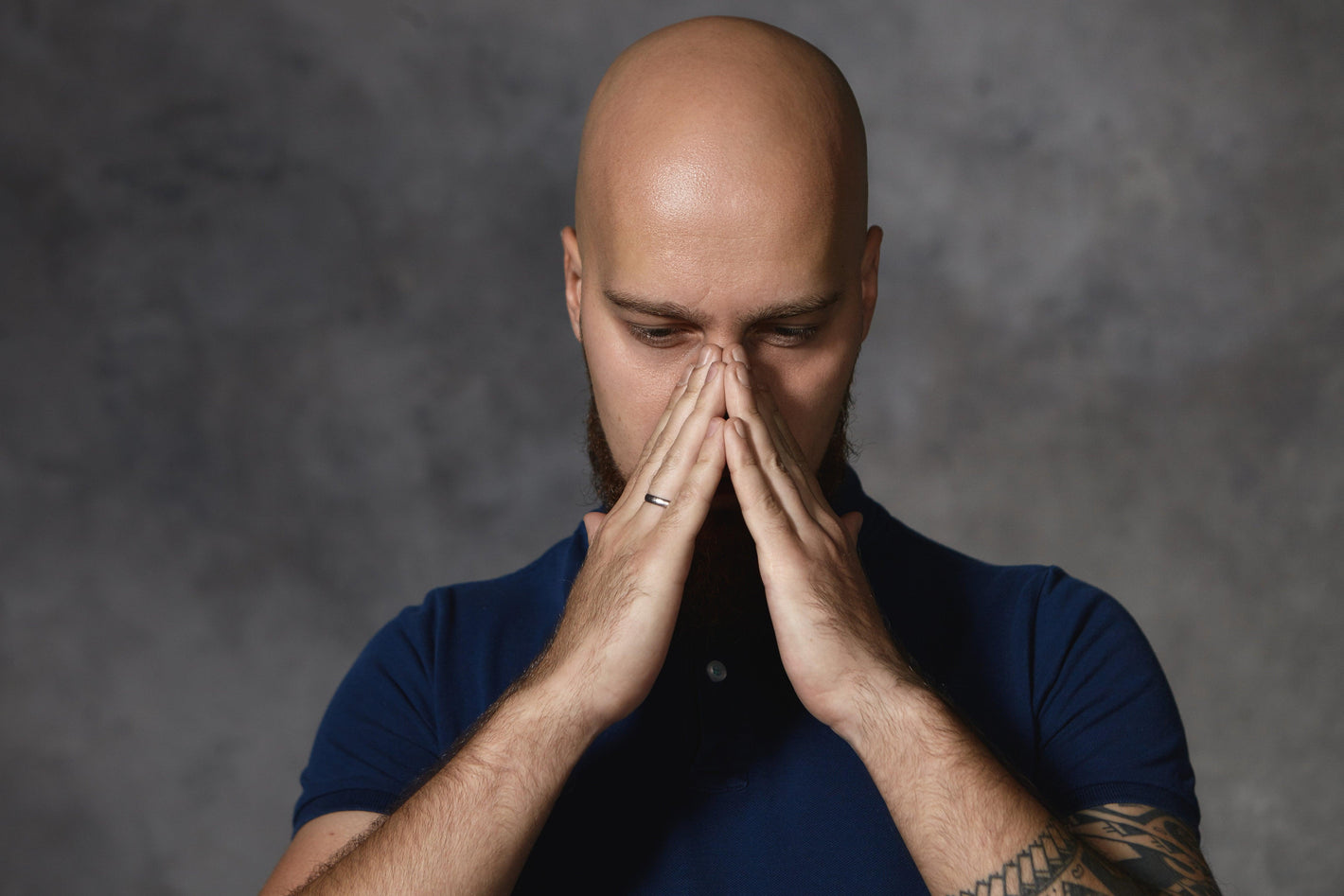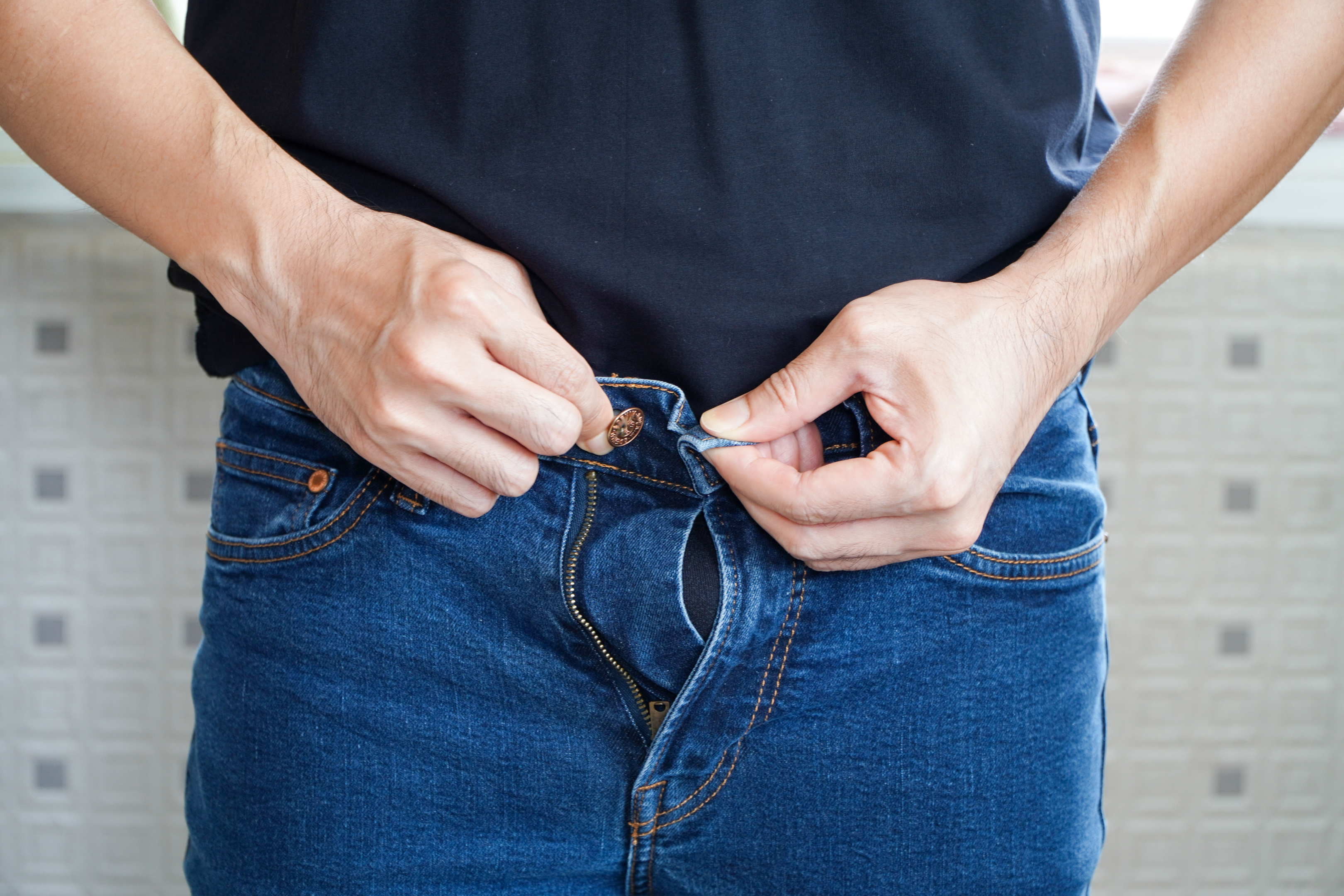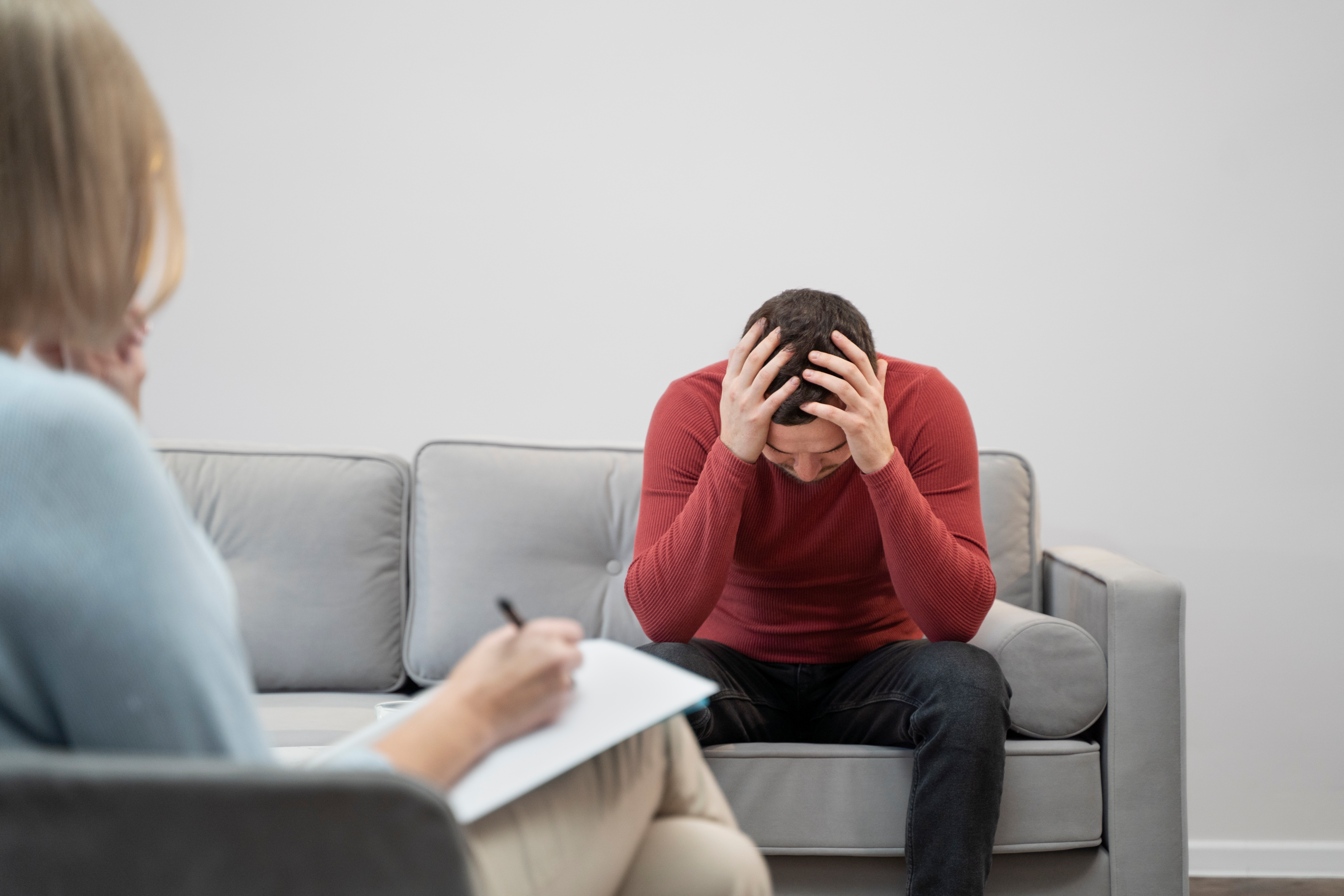Can masturbation cause hair loss?

Related products
What’s covered?
Can masturbation cause hair loss?
There is no way masturbation can influence hair follicles and hair growth.

Masturbation is one of our culture's taboo subjects that is not discussed very often. This reluctance to talk has created many myths, e.g., it can cause impotence, hair loss, etc. Such thoughts are propagated mostly by people who are abhorrent to masturbation on moral and religious grounds.
Science, however, rarely supports these myths. Can it cause hair loss? It is one of the common masturbation myths. Let's explain it in light of scientific evidence.
Masturbating is more common than you think
Most youth (due to societal abhorrence) hide this habit from others and tend to assume that this habit is unique to them. This thinking rarely has any weight in scientific studies. Various survey studies have found that most men and women practice masturbation.

A survey study published in 2007 in the Archives of Sexual Behaviour found that 95% of men and 71.2% of women in the UK admitted having masturbated at least once in the past 4 weeks.
However, the prevalence of baldness is much less, with a little over half (53%) of the men going bald before 49. So, if masturbation is the cause of hair loss, much more people must be losing their hair.
How does masturbation affect you?
There is, however, no evidence that masturbation harms your body. However, it did have some benefits for you, e.g.,
-
It boosts your mode and relieves stress.
-
It is a safer way to get rid of your frustrations
-
It is a practical and fun way of self-love.
Let's explore how it can influence your hair.
How does masturbation influence hair health?
Can masturbation harm your hair? The simplest answer is 'No.' No proof or scientific studies exist to support the claim that it, in some way or the other, can influence hair health.

The arguments supporting this claim are that masturbation influences testosterone levels, causes erectile dysfunction (by physical damage to the penis), and results in protein loss from the body. Let's say what the research says.
Masturbation and testosterone levels
A higher testosterone level means more production of dihydrotestosterone (DHT) which is the cause of hair thinning. However, the results of scientific studies do not support this claim. Some studies have found that masturbation doesn't cause any significant increase in testosterone levels, but avoiding masturbation did cause an increase in testosterone levels.
A study published in 2003 in the Journal of Zheijiang University found that testosterone levels reach a peak after 7 days of abstinence from masturbation. A very recent study published in Basic Clinical Andrology in 2021 found that masturbation can cause an increase in testosterone levels. Still, this increase is insignificant, and the hormone ratios remained undisturbed.
So, you are not likely to have more testosterone if you are masturbating.
Masturbation and protein loss
You can feel slight weakness due to some loss of proteins as your semen is a protein-rich secretion. The human semen contains 3700-7460 milligrams of protein in 100 ml. But, given that you eject only a few (1-4 ml) of semen each time, the protein loss with each ejaculation is negligible.
Masturbation and erectile dysfunction, and other sexual health conditions
Similarly, there is also no proof for other myths about masturbation, i.e., it causes infertility (in women) and impotence (in men), causes blindness, damage to the genitals, etc. These claims stem from the people who oppose it on various other grounds.
These claims persist because people are reluctant to talk about them, even to sexual health experts. It causes even less stress to the body than the normal sex.
Does masturbating pose any risk?
The process has some risks which need to be addressed. These risks are mostly psychological.

The common risks related to masturbation are;
-
The too rough process can damage the skin of the penis leading to a decreased sensitivity or swelling
-
It can interfere with your life, including concentration on work, etc.
-
If societal attitudes on masturbation influence you, there is a chance that you can lose your psyche. The cause will not be physical but purely emotional.
-
A feeling of guilt can lead to low self-esteem and loss of interest in sex.
-
Self-pleasure can reduce your appetite for real sex (low libido).
What will happen if you masturbate too much?
There is also an extension of the original myth that "little masturbation doesn't cause any serious issue, but too much masturbation can cause severe issues." So, what will happen if you're masturbating too much, say 2-3 times per day or even more?
Can it lead to hair fall? No! If you are spending too much time on masturbation, your other activities, e.g., social events, plans for outings, homework, daily job assignments, etc., may get disturbed. There is, however, no way it can stop your testes from producing sperm and your penis going erect.
However, you can lose concentration on other tasks and neglect your vital relationships. If you have an abnormally higher urge to masturbate, you should seek professional medical advice as it could be a sign of genitals infection, etc. If no such issue is diagnosed, you need psychological therapy.
The bottom line
Masturbation is a debated topic and often has various moralistic and scientific explanations. While the moralists and religious community view it as a sin that can cause serious issues, e.g., impotence, baldness, etc., scientific studies' results are quite the opposite, the scientific and medical studies have found that it is beneficial for you as it relieves stress, helps you avoid sexually transmitted infections, and allows you to focus on other aspects of your personal life (and many more).

In no way will it influence your hair growth and cause baldness, and the research has confirmed it. You can, however, develop a sense of guilt or moral crime. The resulting depression can exacerbate the hair loss already underway due to other issues (e.g., male pattern baldness etc.). It is best practice to be open to your partner and physician about such problems.
To know more about the causes of hair loss, click here.
Our sexual health experts are available for you. Click here for online consultation and a piece of specific medical advice.
If you are worried about hair loss, be calm. A lot of hair loss treatments are available. Click here to read our articles on hair loss and its treatment.

















 Rated Excellent by 26,523+ Reviews
Rated Excellent by 26,523+ Reviews